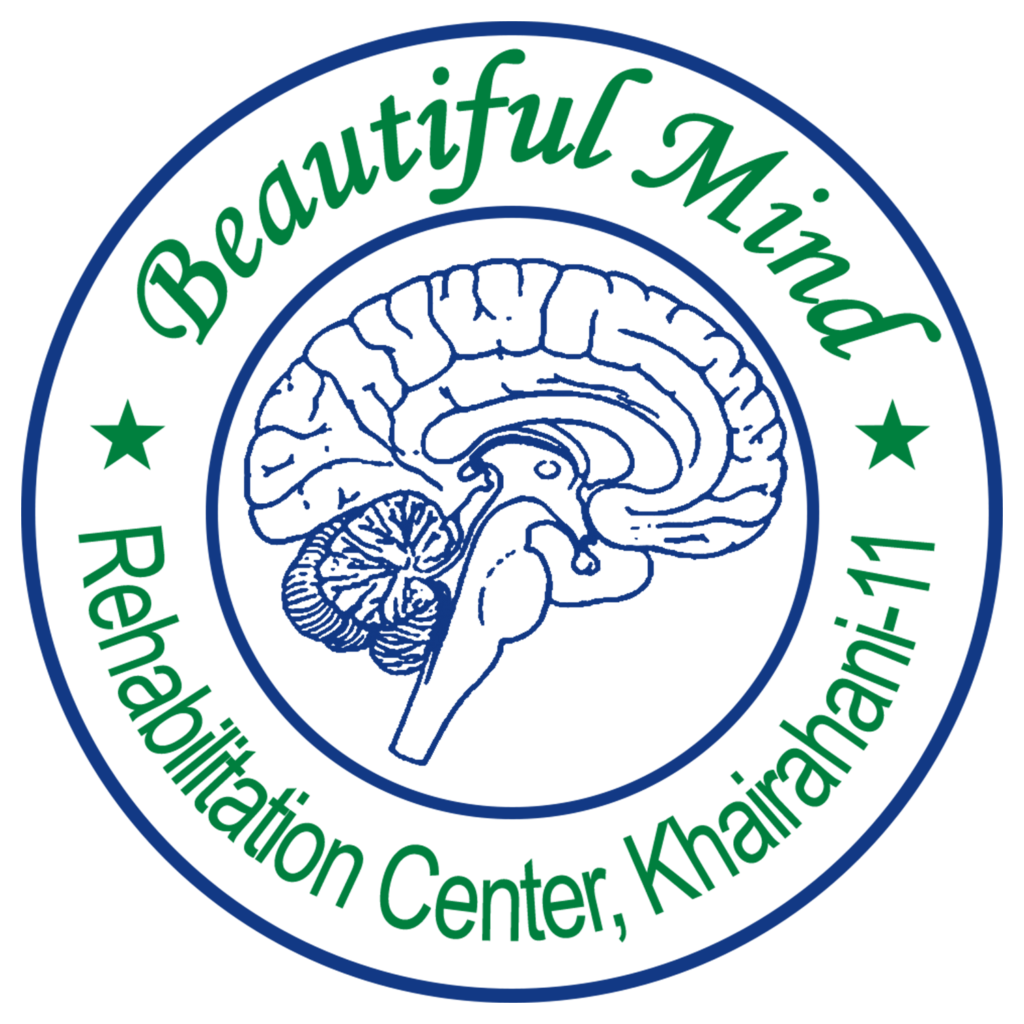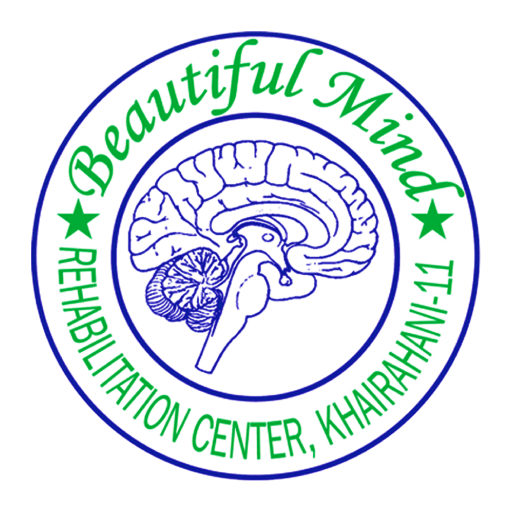Why Early Intervention in Mental Health Matters: Nepal’s Growing Awareness
By Beautiful Mind Institute of Psychiatry
📍 Khaireni-11, Gaidaha, Parsa, Chitwan, Nepal
🌐 https://beautifulmind.com.np
📞 +977-98550945843 (Hira Ale Magar), +977-9855094582 (Ansuda Poudel), +977-9855094584 (Kamal Sharma Bushal)
Introduction
Why Early Intervention in Mental Health Matters: In a society where silence often follows suffering, mental health in Nepal is beginning to find a voice. And the most powerful tool in this shift? Early intervention. At the Beautiful Mind Institute of Psychiatry, we’ve seen firsthand how timely mental health care can rewrite a person’s story—from silent suffering to sustainable healing.
In this article, we unpack why early mental health treatment matters more than ever in Nepal, explore the barriers, highlight success stories, and give practical insights for families, professionals, and caregivers.

What Is Early Intervention in Mental Health?
Early intervention refers to the identification and treatment of mental health issues at their earliest stages—often before a formal diagnosis is even made. It focuses on recognizing early warning signs such as changes in behavior, mood, relationships, motivation, or functioning, and taking action before the condition worsens.
Early intervention is not about medication alone. It may include:
- Psychoeducation
- Individual and family counseling
- Lifestyle and sleep regulation
- Social skill development
- Yoga, mindfulness, and expressive therapies
- Supportive group therapy
- School or vocational guidance
Why Early Intervention in Mental Health Matters in Nepal
1. Mental Health Issues Are More Prevalent Than We Think
According to the World Health Organization (WHO), about 1 in 4 people globally experience a mental health condition. In Nepal, this number is likely underestimated due to stigma, limited access, and lack of awareness. Depression, anxiety, trauma-related disorders, substance misuse, and even psychosis are increasingly affecting young people, women, migrant workers, and families post-COVID.
2. Delays Lead to Crisis
In Nepal, most people only seek help at a crisis point—when a family member becomes violent, suicidal, or completely nonfunctional. This delays healing and increases the burden on caregivers and health systems. Early treatment can:
- Reduce hospitalization
- Lower suicide risk
- Improve functioning at school or work
- Prevent the development of severe mental illness

3. Stigma is Still Strong, But Changing
The cultural belief that mental illness equals “madness” or weakness remains strong in Nepal. However, there’s a growing openness, especially among youth and urban communities. Early support normalizes mental health, making it easier to talk about, seek help, and heal without shame.
4. Children and Adolescents Benefit the Most
Many mental health disorders begin before age 18, yet most go unrecognized. Behavioral issues, bullying, isolation, screen addiction, or academic struggles often mask anxiety, ADHD, depression, or trauma. Early care helps develop:
- Emotional resilience
- Strong coping mechanisms
- Healthy relationships
- Self-confidence and problem-solving
The Economic and Social Cost of Delayed Treatment in Nepal
Mental illness doesn’t just affect individuals. It affects families, communities, workplaces, and the country’s development. Untreated mental health issues lead to:
- Loss of productivity
- Increased substance abuse
- Domestic violence
- Suicide (Nepal ranks high in South Asia)
- School dropouts and job loss

By investing in early care, Nepal can reduce economic loss and build a more resilient, emotionally intelligent population.
Barriers to Early Mental Health Care in Nepal
Despite the clear benefits, early intervention faces several challenges:
1. Lack of Awareness
Many people don’t recognize symptoms of anxiety, depression, trauma, or personality changes. They often turn to shamans, religious leaders, or isolate themselves.
2. Stigma and Shame
Families fear social rejection, so they hide symptoms or delay treatment until it’s no longer possible.
3. Limited Access to Services
Rural areas lack psychologists, psychiatrists, and community mental health outreach. Most facilities are urban-based.
4. Mistrust in Medication
Some fear being “trapped” in lifelong medication, even when many cases can be managed through non-drug therapy.
How Beautiful Mind Institute Supports Early Mental Health Intervention
At Beautiful Mind Institute of Psychiatry, our mission is early detection, holistic healing, and long-term wellness. We offer:
✅ Holistic Assessments
Not just diagnostic labels—our team explores emotional, social, biological, and family dynamics before creating a care plan.
✅ Youth and School Programs
We offer outreach programs to help schools, colleges, and families understand emotional well-being early on.
✅ Non-Medication-Based Therapies
Counseling, yoga, meditation, occupational therapy, and creative arts are part of our core approach.
✅ Family Psychoeducation
Helping families understand mental illness and become allies in recovery.
✅ Confidential Support
Private, stigma-free consultations for individuals who want to explore their mental health early without being labeled.
Real-Life Success Story: Healing at the Right Time
Rina, a 20-year-old university student from Bharatpur, had been feeling unusually withdrawn, anxious, and overwhelmed with her studies. Instead of waiting, she reached out to Beautiful Mind Institute. Through counseling, yoga therapy, and sleep management, she was able to regain focus, rebuild her self-esteem, and avoid dropping out.
This is the power of early help. Prevention isn’t passive—it’s powerful.
What Can You Do?
🟠 If You’re a Parent:
Watch for emotional or behavioral shifts in your children. Ask open-ended questions, validate their feelings, and seek professional help if you’re unsure.
🟢 If You’re a Teacher:
Learn basic signs of emotional distress. Refer students to counseling or mental health professionals early.
🔵 If You’re an Employer:
Create a workplace that supports mental wellness. Offer Employee Assistance Programs (EAPs), reduce stigma, and encourage openness.
🔴 If You’re Struggling:
Talk to someone. You don’t have to wait to “break down” to deserve help.
Nepal’s Mental Health Future Is Looking Brighter
From radio programs to community outreach, from hospital services to social media campaigns—Nepal is waking up. Mental health is becoming part of our national conversation. With more awareness, more professionals, and more youth leading the change, early intervention will be the norm—not the exception.
Let’s Talk Before It’s Too Late
Beautiful Mind Institute invites you to take that first brave step. Whether you’re worried about your child, facing burnout, or simply feeling lost—you’re not alone, and it’s not too early.
📍 Visit us at: Khaireni-11, Gaidaha, Parsa, Chitwan, Nepal
🌐 Book your appointment online: https://beautifulmind.com.np
📞 Call us: +977-98550945843 / +977-9855094582 / +977-9855094584
📧 Email: info@beautifulmind.com.np
✅ Top FAQs on Early Mental Health Intervention in Nepal
1. What is early intervention in mental health?
Early intervention means identifying and treating mental health issues at their earliest signs—before they escalate into more serious conditions.
2. Why is early mental health treatment important?
It prevents long-term suffering, reduces the risk of severe illness, and improves recovery outcomes for individuals and families.
3. What are some early warning signs of mental illness?
Sudden mood swings, withdrawal, irritability, sleep issues, concentration problems, loss of interest, and changes in daily functioning.
4. Who benefits the most from early intervention?
Children, adolescents, and young adults—since many mental health conditions begin before the age of 25.
5. Is early intervention only for severe mental illness?
No. It’s also for stress, anxiety, academic pressure, burnout, relationship issues, and emotional overwhelm—before they grow worse.
6. What are common misconceptions about early mental health care in Nepal?
That it means you’re “crazy,” weak, or need lifelong medication. In truth, early care helps prevent crises and enhances strength.
7. How does Beautiful Mind Institute support early intervention?
Through holistic assessment, counseling, family education, school programs, yoga, expressive therapies, and personalized care plans.
8. What therapies are used besides medication?
Counseling, CBT, mindfulness, trauma-informed care, yoga therapy, occupational therapy, and family-based interventions.
9. How early is “too early” to get mental health support?
Never too early! If you or your loved one notice distress or changes in thoughts, emotions, or behavior, it’s time to talk.
10. How does early care reduce suicide risk?
By addressing distress, trauma, or depression early—people gain coping tools and support before reaching a breaking point.
11. Can early mental health support help in schools?
Yes. It improves emotional regulation, academic performance, peer relationships, and reduces dropouts and behavioral issues.
12. What happens if we delay treatment?
Delays can lead to worsening symptoms, hospitalizations, substance use, family strain, and harder recovery.
13. Is early treatment expensive in Nepal?
Not necessarily. Early-stage therapy or counseling is often more affordable than later-stage hospitalization or crisis care.
14. Can early intervention prevent psychosis or schizophrenia?
In some cases, yes. Recognizing early signs like paranoia, social withdrawal, or unusual thoughts can reduce long-term impact.
15. How can parents help with early mental health detection?
By observing changes in sleep, appetite, mood, school performance, and communication—and seeking professional input early.
16. Does early care always involve a psychiatrist?
Not always. Many cases are managed by counselors, psychologists, or holistic therapists depending on the severity.
17. What role do schools play in early intervention?
They are often the first to notice problems. Teachers can refer students for mental health screenings and support services.
18. How do cultural beliefs affect early intervention in Nepal?
Stigma, shame, and traditional views often delay help-seeking—but these are slowly shifting with education and outreach.
19. Can family counseling be part of early care?
Yes. Educating and involving families improves understanding, communication, and overall outcomes.
20. Are early signs of mental illness always visible?
Not always. Many individuals mask their distress. That’s why open conversations and emotional literacy are crucial.
21. What’s the difference between prevention and early intervention?
Prevention targets at-risk populations before symptoms appear. Early intervention starts after early symptoms emerge.
22. What’s the recovery rate with early mental health support?
Recovery rates are significantly higher with early treatment, especially when therapy is combined with family and lifestyle support.
23. Is it confidential to seek early help at Beautiful Mind Institute?
Yes. All consultations and sessions are 100% confidential and judgment-free.
24. Can young people self-refer for early mental health care?
Yes. Anyone feeling overwhelmed, anxious, or emotionally stuck can book a consultation directly—no referral needed.
25. How do I get started with early mental health support in Nepal?
Contact Beautiful Mind Institute of Psychiatry via https://beautifulmind.com.np or call +977-98550945843, +977-9855094582, +977-9855094584.

















